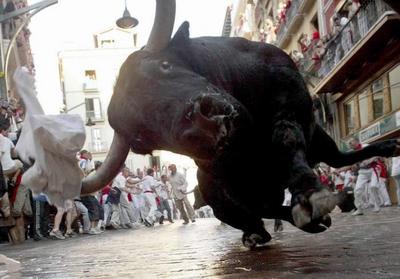Marshall: For Whom the Bell Tolled
Sunday, September 25, 2005; B07
A nation's identity consists of braided memories that are nourished by diligence at civic commemorations. It is, therefore, disappointing that at this moment of keen interest in the Supreme Court and the office of chief justice, scant attention has been paid to the 250th anniversary of the birth of the nation's greatest jurist, Chief Justice John Marshall.
The oldest of the family's 15 children, he was born Sept. 24, 1755, into Virginia rusticity where women pinned their blouses with thorns. Yet he developed the most urbane and subtle mind of that era of remarkable statecraft. He was a member of Virginia's ratifying convention, and in nearly 35 years as chief justice he founded American constitutional law. That kind of legal reasoning by Supreme Court justices is a continuous exegesis of the Constitution and is sometimes not easily distinguished from a continuing writing of the document.
Marshall is the most important American never to have been president. Because of his shaping effect on the soft wax of the young republic, his historic importance is greater than that of all but two presidents -- Washington and Lincoln. Without Marshall's landmark opinions defining the national government's powers, the government Washington founded might not have acquired competencies -- and society might not have developed the economic sinews -- sufficient to enable Lincoln to preserve the Union.
Article I, Section 8, enumerates Congress's powers, and then empowers Congress "to make all laws which shall be necessary and proper for carrying into execution the foregoing powers." Marshall's capacious construction of the "necessary and proper" clause shaped the law and the nation's consciousness of itself.
Did Congress have the power -- unenumerated but implied -- to charter a national bank? In 1819, 42 years before Lincoln grappled with unprecedented exigencies, Marshall ruled:
"Throughout this vast republic, from the St. Croix to the Gulph of Mexico, from the Atlantic to the Pacific, revenue is to be collected and expended, armies are to be marched and supported. The exigencies of the nation may require that the treasure raised in the north should be transported to the south. . . . Is that construction of the constitution to be preferred which would render these operations difficult, hazardous, and expensive?"
Two years later he held that "we are one people" in war, in making peace and -- third, but not of tertiary importance -- in "all commercial regulations." The Framers' fundamental task was to create a federal government with powers impervious to encroachments by the states. The Framers had been frightened by the states' excesses in using political power on behalf of debtors against creditors and to limit competition by mercantilistic practices such as granting monopolies. Marshall made constitutional law a bulwark of the sanctity of contracts, the bedrock of America's enterprise culture. And by protecting the private rights essential to aspirational individualism, Marshall's court legitimized an inequality -- not of opportunity but of outcomes -- compatible with a republic's values.
When in 1801 Marshall was nominated to be chief justice -- one of the last things, and much the best thing, President John Adams did -- the nation still largely had an Articles of Confederation mentality. Formally, it was a nation; emotionally -- hence, actually -- it was still in many ways many countries, most states being older than and more warmly embraced than the nation. Marshall's jurisprudence built the bridge to 1862, the year it became clear that many men would have to die in a protracted conflict to preserve the Union and that many would be willing to do so.
Marshall had been willing to die to help midwife the nation's birth, seeing much hard action during the Revolutionary War. Amiably sociable and broadly tolerant, he had friends of vastly different political persuasions, and the only adversary he seems to have steadily disliked was a second cousin named Thomas Jefferson, in part because of Jefferson's partisan criticisms of Washington, whom Marshall celebrated, in an immense biography, as the symbol of a national identity transcending state loyalties.
Among the many recent fine biographies of America's Founders, none is finer than Jean Edward Smith's 1996 book "John Marshall: Definer of a Nation." Smith locates Marshall's greatness in this fact: Unlike Britain's constitutional documents, which are political documents that it is Parliament's prerogative to construe, the U.S. Constitution is a legal document construed by courts, not Congress. When judicial supervision of our democracy seems tiresome, consider the alternative.
Marshall's life of strong, consequential prose had, Smith writes, a poetic coda. Marshall died in Philadelphia, birthplace of the Constitution into which he breathed so much strength and meaning. The Liberty Bell, while tolling his death, cracked. It never rang again.

















<< Home